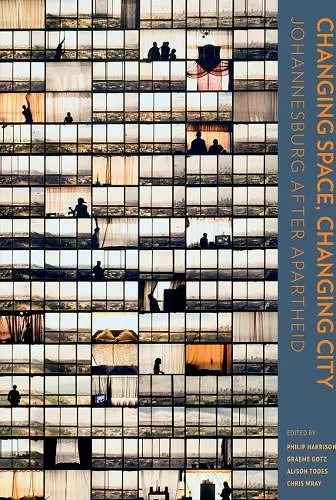Changing Space, Changing City
Johannesburg after apartheid - Open Access selection
David Everatt author Claire Bénit-Gbaffou author Peter Ahmad author Willem Badenhorst author Keith Beavon author Sarah Charlton author Yasmeen Dinath author Teresa Dirsuweit author
Format:Hardback
Publisher:Wits University Press
Published:30th Oct '14
Currently unavailable, and unfortunately no date known when it will be back

As the dynamo of South Africa’s economy, Johannesburg commands a central position in the nation’s imagination, and scholars throughout the world monitor the city as an exemplar of urbanity in the global South.
This richly illustrated study offers detailed empirical analyses of changes in the city’s physical space, as well as a host of chapters on the character of specific neighbourhoods and the social identities being forged within them. Informing all of these is a consideration of underlying economic, social and political processes shaping the wider Gauteng region.
A mix of respected academics, practising urban planners and experienced policymakers offer compelling overviews of the rapid and complex spatial developments that have taken place in Johannesburg since the end of apartheid, along with tantalising glimpses into life on the streets and behind the high walls of this diverse city.
The book has three sections. Section A provides an overview of macro spatial trends and the policies that have infl uenced them. Section B explores the shaping of the city at district and suburban level, revealing the peculiarity of processes in different areas. This analysis elucidates thelarger trends, while identifying shifts that are not easily detected at the macro level. Section C is an assembly of chapters and short vignettes that focus on the interweaving of place and identity at a micro level.
With empirical data supported by new data sets including the 2011 Census, the city’s Development Planning and Urban Management Department’s information system, and Gauteng City-Region Observatory’s substantial archive, the book is an essential reference for planning practitioners, urban geographers, sociologists, and social anthropologists, among others.
- Winner of Book, Creative and Digital Award for the best Non-Fiction Edited Volume 2017 (South Africa)
ISBN: 9781868147656
Dimensions: unknown
Weight: unknown
656 pages